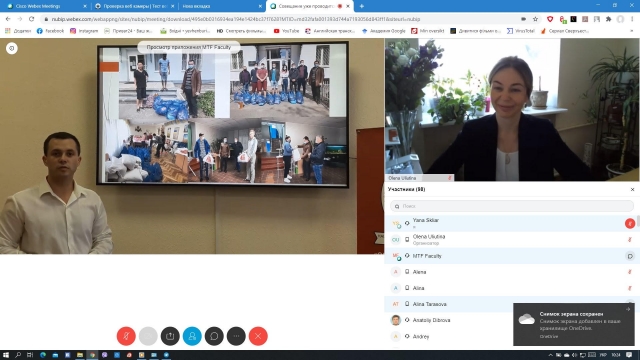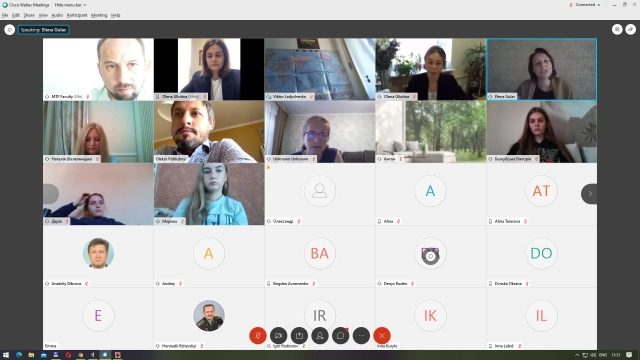Традиційна «Школа першокурсника» набирає обертів: юридичний факультет
9 вересня радо зустріли своїх «Першачків» на юридичному факультеті. Розпочала відеоконференцію декан факультету Олена Яра, яка привітала учасників з успішним вступом та коротко розповіла про наш Славетний Університет.

У привітальному зверненні ректор Станіслав Ніколаєнко розповів про історію університету, озвучив головні напрямки діяльності структурних підрозділів, роз’яснив особливості навчального процесу за карантинних умов, засвідчив важливість оволодіння знаннями за обраною спеціальністю, а також побажав великих звершень і досягнень у навчанні нових студентів вишу.

Далі слово взяла заступник начальника відділу Оксана Зазимко, яка висвітлила особливості освітнього процесу в Університеті.


Про специфіку роботи громадських організацій викладено головою первинної профспілкової організації студентів Олексієм Мельником.
Директор ННЦ виховної роботи та соціального розвитку Геннадій Ржевський зосередив увагу на основних вимогах виховного процесу як у навчанні так і в житті студентства поза лавами вишу. Особлива увага приділена саме проживанню в гуртожитках університету, про що детально розповів директор студмістечка Сергій Стецюк.


Кафедра військової підготовки університету була представлена її очільником Анатолієм Есауловим, який ввів в кругозір студента основи та перспективи військової підготовки в непростих умовах сьогодення.




Багато цікавої інформації було подано про культурне життя університету, зокрема викладачем кафедри культурології Наталею Шелепницькою розказано про існуючі заходи, гуртки і колективи творчості та можливості для студентства реалізувати свої не тільки здобутки у навчанні, але розвинутись творчо з врахуванням певних навичок та здібностей кожної особистості окремо.

Насичене життя спортивного розвитку та здобутки університету були представлені завідувачем кафедри фізичного виховання Миколою Костенком. Представлення факультету відбулось шляхом загальної характеристики особливостей та функціоналу кафедральних складів та наукових можливостей кафедр, які були представлені Володимиром Єрмоленком завідувачем кафедри аграрного, земельного та екологічного права імені академіка Василя Зіновійовича Янчука, Оленою Гулак викладачем кафедри адміністративного та фінансового права, завідувачем кафедри міжнародного права та порівняльного правознавства Віктором Ладиченком; завідувачем кафедри теорії та історії держави і права Вірою Качур та завідувачем кафедри цивільного та господарського права Олексієм Піддубним.




Заступником декана Оленою Улютіною ретельно розглянуті питання, щодо організації навчального процесу та студентського життя поза навчальний час (поселення в гуртожиток, самоврядування студентства, організаційне забезпечення).
Ознайомчий курс з університетським життям було завершено заключним словом декана юридичного факультету Оленою Ярою.
Для першокурсників факультету привітання та наставлення до навчання були започаткуванням у справжній студентський вирв.
Наталя Кідалова,
старший викладач кафедри міжнародного права
та порівняльного правознавства